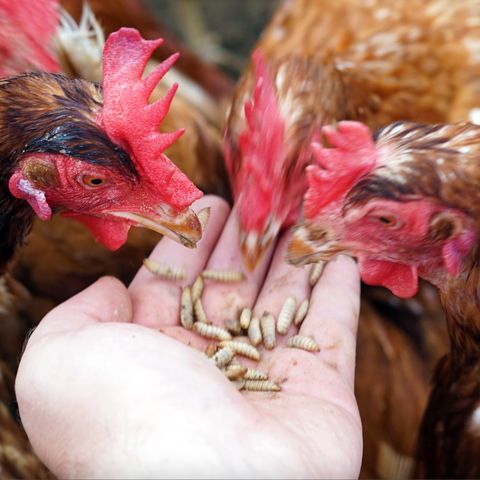Can insect farming solve the global food waste crisis?

Download and listen anywhere
Download your favorite episodes and enjoy them, wherever you are! Sign up or log in now to access offline listening.
Description
In this episode, I talked with Fotis Fotiadis, founder and CEO of the insect protein manufacturer, Better Origin. The company produces feed for poultry from the larvae of black soldier...
show moreLike the alternative protein space more generally, the insect protein sector has exploded over the last two years, as witnessed by the hundreds of millions of dollars of VC financing for start-up companies, like Better Origin, as a sustainable transition in agriculture rises up the policy, investor and corporate agendas, driven by concern around damage to nature, and climate change.
First of all, I asked Fotis about the driving mission behind Better Origin. The company has just published what he called a white paper on how insects can help transform all organic food waste into useful biomass - “Only humans have created a system that is linear, and takes wasted or surplus food and throws it away. In nature, the whole thing is circular. If we can crack that, the opportunities are absolutely massive. Right now, close to $500 billion, if not more, of value is attributed to wasted product, and that’s what we’re targeting.”
We spoke about the company’s approach today. Better Origin is already carrying out the “bioconversion” of insect larvae into chicken feed, on poultry farms. They turn food waste into usable biomass, in shipping containers, where the larvae bulk up around 5,000-fold in just under two weeks. The poultry farmer can then feed these live larvae on-farm, directly to chickens.
And we talked about the company’s next steps. Better Origin wants to get into the business of processing larvae off-farm, for pet food and aquaculture. This would still follow a distributed approach, via warehouses near sources of food waste, such as supermarkets. These units might each process around 15,000 tonnes of food waste per year.
We talked costs – Fotis acknowledged that insect protein would be more expensive than soya, on a kilo for kilo basis, for years to come, as straight animal feed. But this missed the point, he says, as insect protein would comprise perhaps only 5-10% of the diet, and deliver an overall net financial benefit to the farmer through reduced animal stress, higher productivity, lower mortality and less feed input. Supermarkets get a brand benefit from marketing environmentally friendly eggs, plus less waste.
Regarding land intensity, Fotis estimates that he can produce the same amount of protein on 1sqm as soy would require over 1,500 sqm.
Better Origin’s xmas party was three times bigger this year than last. This breakneck growth is “exciting, but also very difficult to deal with", he says.
Information
| Author | Gerard Wynn |
| Organization | Gerard Wynn |
| Website | - |
| Tags |
Copyright 2024 - Spreaker Inc. an iHeartMedia Company

Comments